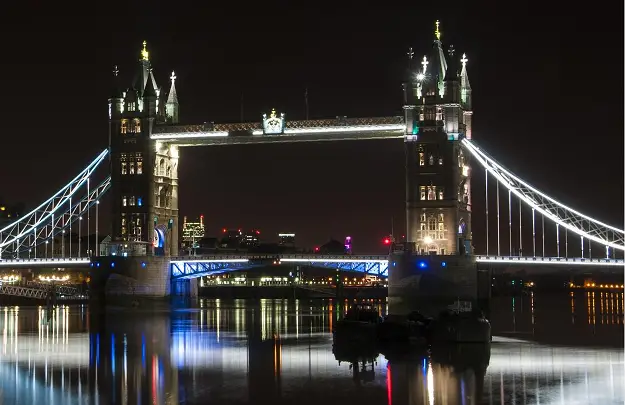The UK has begun planning to manage several days of electricity blackouts during the winter in the event cold weather combines with gas shortages, forcing the nation to restrict gas usage.
According to the government’s “reasonable worst-case scenario,” Britain may face an electrical capacity shortfall of about one sixth of demand, even once the government has brought online emergency coal plants to help assuage shortfalls. Under this outlook, gas shortages will combine with lower temperatures and reduced electricity supply from Norway and France, to produce four days in January when the UK may need to trigger emergency gas rationing.
In a statement the government said this is, “not something we expect to happen… Households, businesses and industry can be confident they will get the electricity and gas they need.”
However analysts note if the winter is particularly cold, Britain will have to rely on pipeline gas shipments from mainland Europe, where Russia has already reduced flows to 20% of capacity through the Nord Stream pipeline to Germany, as well as imposed restrictions on flows to other EU nations such as Italy and France.
Unfortunately the UK has very little domestic storage capacity. Although the UK has restored the nation’s biggest natural gas storage site, Rough, owner Centrica Plc notes that the storage capacity will only be equivalent to about 10 LNG cargoes, which will not make any significant difference.
Given Russian constraints on natural gas supplies, Britain can also expect stiff competition for LNG shipments from other countries in Europe.
The government noted in its statement however that the UK has its own North Sea gas reserves, has the largest LNG port infrastructure in Europe, and, “a gas supply underpinned by robust legal contracts.”
The UK’s emergency plan begins with the network operator temporarily overriding commercial agreements, to direct flows of gas on the system to the most critical users. The second stage of the emergency plan will entail halting supplies to power stations, which will trigger planned and organized power cuts to both industry and domestic users.
Part of the problem Britain will face is that power suppliers whose imports it relies on are already taking about restricting power exports as part of their own emergency plans.
Norway has announced it will limit power exports in winter as part of its own plans to limit shortages in its country.
Meanwhile Electricite de France SA’s nuclear fleet currently has less than half of the nation’s reactors online due to a raft of maintenance and repair projects taking longer than expected. That means energy imports from France will also be limited, if even available.
National Grid has warned customers to expect skyrocketing energy bills this winter regardless, which will only place more strain on already taxed customer pocketbooks. This has ignited further debate within the nation of the degree and manner of assistance the government should be providing citizens and how it should determine who receives it.
That debate is ongoing.

